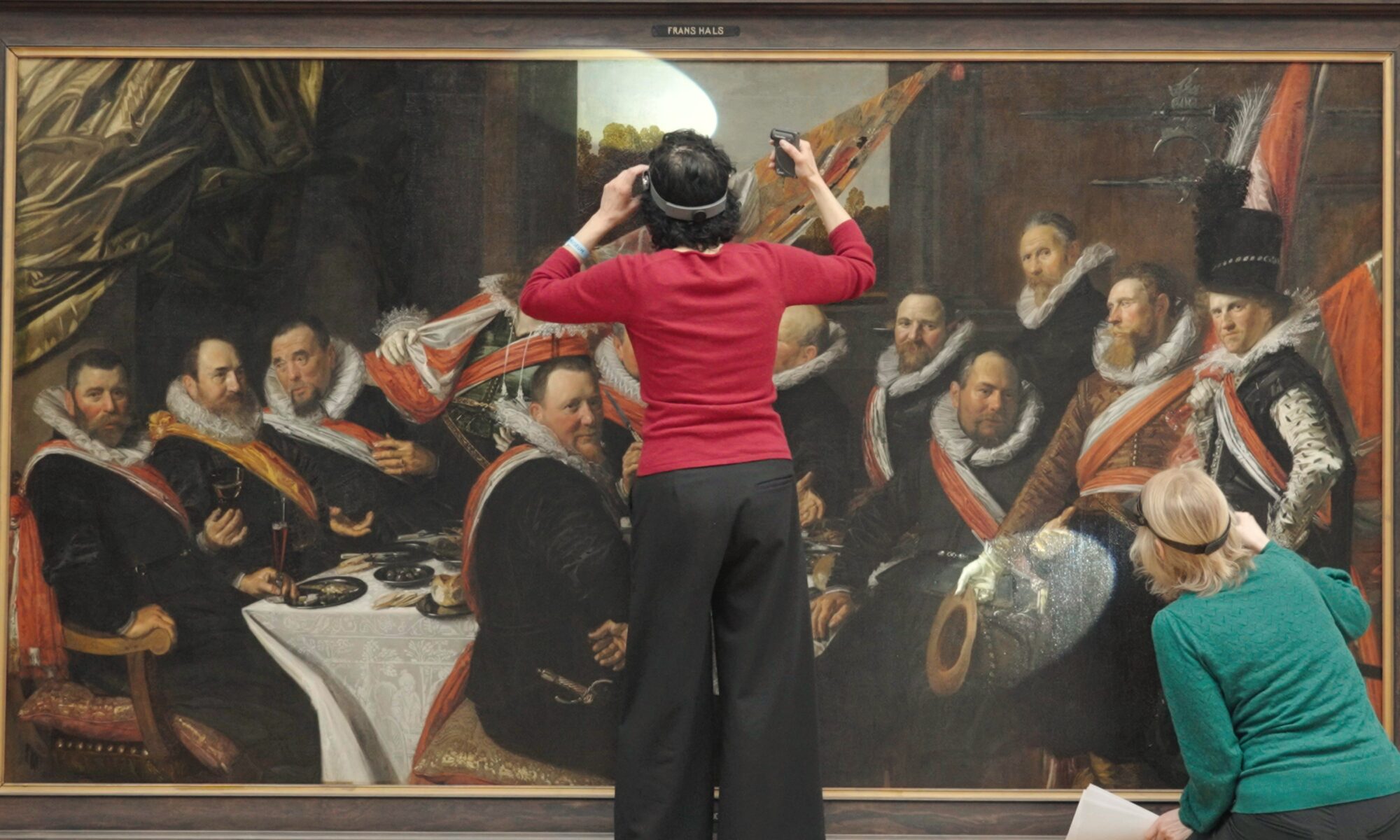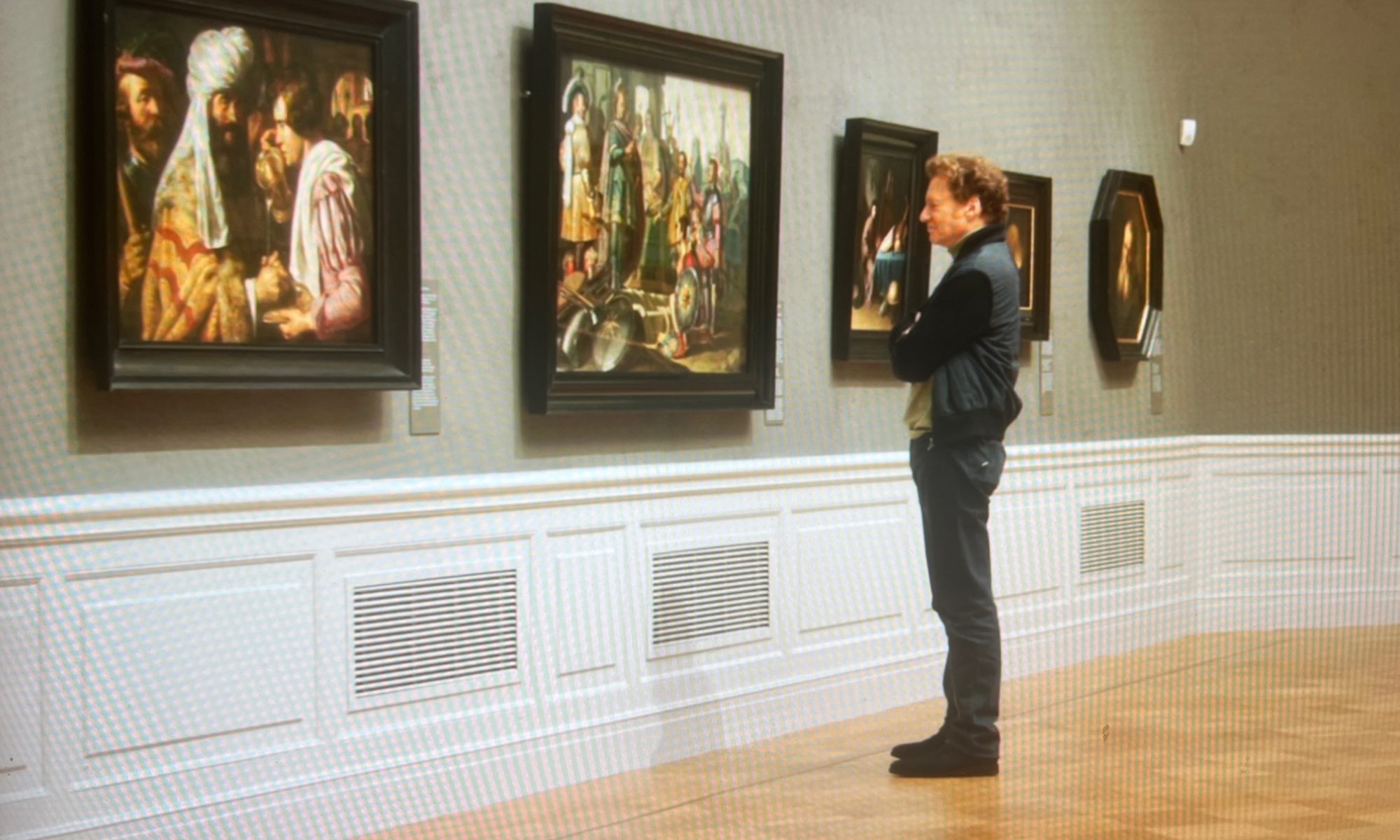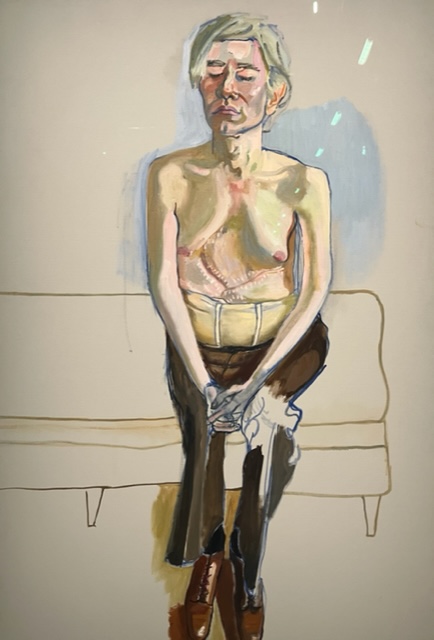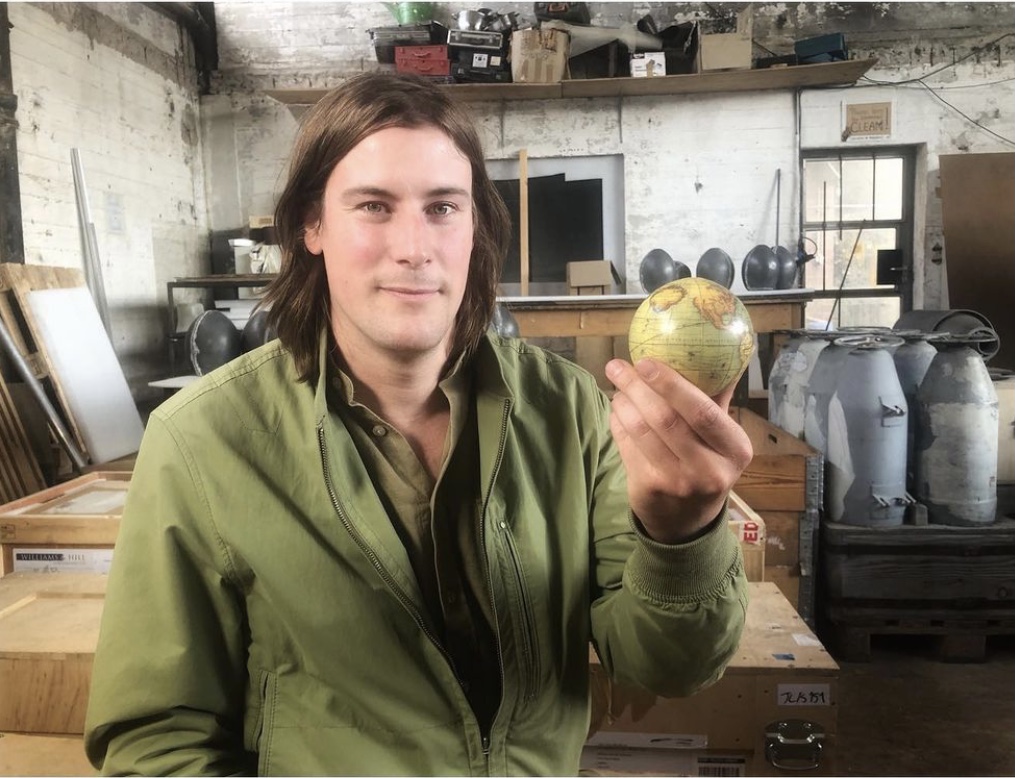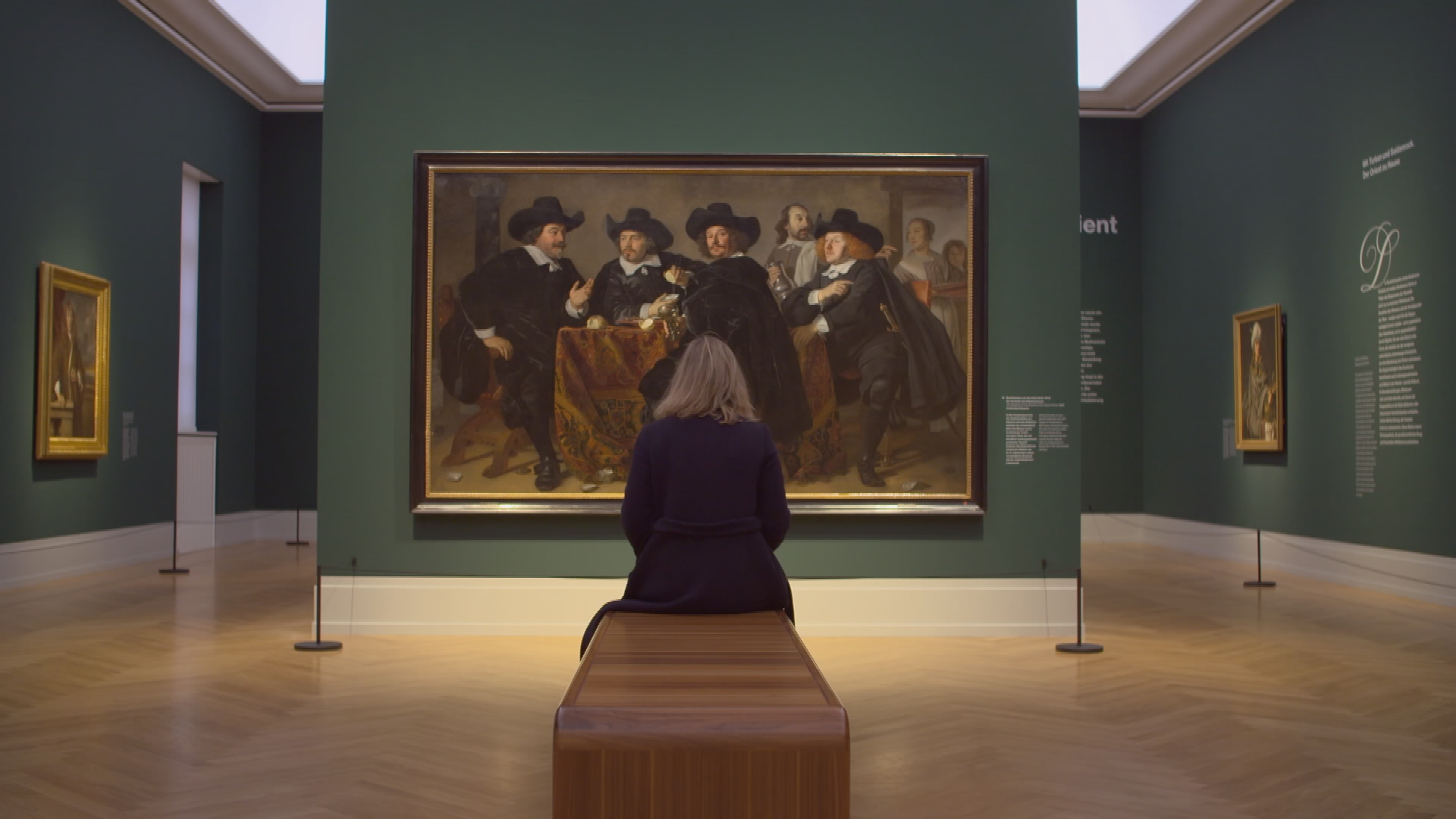Alongside Rembrandt and Vermeer, Frans Hals is one of the key figures of 17th century Dutch art. But unlike his contemporaries, who tended to paint gloomy or pensive pictures, the Haarlem artist was entirely devoted to joy. Frans Hals painted people who could barely conceal their lust for life – at a time when it was frowned upon to show teeth. The film explores the role that laughter plays in the art of Frans Hals and in our lives today. GET YOUR TICKETS HERE
IN PRODUCTION: REMBRANDTS HEIRS
Rembrandt has strongly influenced art over centuries. Not only through his masterpieces but also through his work as a teacher. The knowledge he taught his students was adopted by them. They incorporated it into their own art and passed it on to those who came after them. In this way, the universal messages inscribed in his paintings have also been passed on. Art that directly or indirectly bears Rembrandt‘s influence can therefore be found in every epoch of art history – until today. But why was Rembrandt such a great teacher for human kind? What makes the old master still so relevant in the 21st century? And what can we still learn from him today? Together with the world‘s largest collector of Rembrandt and his pupils, Thomas Kaplan, contemporary artists and art experts, the film goes on the trail of Rembrandt – from Leiden to Amsterdam, to London, Paris and New York – and tells the story of the great master and those who followed him. Script & Direction: Frauke Schlieckau. A Bottega Berlin Production. In cooperation with The Leiden Collection.
PRESS: “THE PAINTER ALICE NEEL. FACES OF AMERICA” IN THE MONOPOL ART FILMS WORTH WATCHING IN NOVEMBER
The art journal Monopol writes in its “11 Art Films Worth Watching in November” about Frauke Schlieckau’s documentary “The Painter Alice Neel. Faces of America”: “The film is a sensitive approach to a chronicler of her time and an appreciation of her (late-discovered) art.” You can find the full Monopol article, here.
The painter Alice Neel: Faces of America”, to be seen in the Arte Media Library, until 6 January 2023.
ON SCREEN THE END OF INDIVIDUALISM. DO WE NEED MORE PUBLIC SPIRIT AGAIN? 10.06.2022, 11 p.m. ZDF aspekte
The consequences of Corona, war, migration and climate change are unmistakable. Our society is in the midst of a process of active upheaval. ZDF aspekte asks: Do we have to limit our individuality in order to exist as a community? With Forensic Architecture, Oscar Murillo and Norbert Bisky. Written and directed by Frauke Schlieckau & Johannes Nichelmann. A production of Bottega Berlin Productions & Studio Jot.
ON SCREEN: CLIMATE CHANGE IN THE ARTS. 7.07. ORF 2, 23.30, 37 min.
More and more artists are addressing climate change in their work. But the art world has a credibility problem. Isn’t it dishonest when artists address climate change in their works, but fly around the world all the time to do so? The film “Climate Change in Art” by Frauke Schlieckau discusses the topic with artists, gallery owners, authors and creatives. Written and directed by Frauke Schlieckau. A Kobalt Production.
ON SCREEN: REMBRANDT, HABIBI!, 3sat Kulturzeit, 06.05.2021, 19.00pm
In her podcast “Rembrandt, habibi,” which is well worth listening to, journalist Amina Aziz examines the Dutch Baroque painter and his contemporaries from a postcolonial perspective. Together with her, we visit the exhibition “Rembrandt’s Orient” to look at the art of the beloved painter and his contemporaries with irreverence, rather than reverence, for a change. For Rembrandt and his colleagues, artists at the center of a brutally expanding colonial regime, created a strange, fictional image of the Orient with their paintings. How should, how must we deal with it today? A Bottega Berlin production for 3sat Kulturzeit.
ON SCREEN: REMBRANDT, HABIBI!, 3sat Kulturzeit, 06.05.2021, 7pm
In her podcast “Rembrandt, habibi,” which is well worth listening to, journalist Amina Aziz examines the Dutch Baroque painter and his contemporaries from a postcolonial perspective. Together with her, we visit the exhibition “Rembrandt’s Orient” to look at the art of the beloved painter and his contemporaries with irreverence, rather than reverence, for a change. For Rembrandt and his colleagues, artists at the center of a brutally expanding colonial regime, created a strange, fictional image of the Orient with their paintings. How should, how must we deal with it today? A Bottega Berlin production for ZDF aspekte.
ON SCREEN: RELOAD FOR THE ART WORLD. HOW ROBOTICS AND AI ARE CHANGING CREATIVITY. 3sat, 24.04.2020, 19.20
The documentary “Reload for the Art World. How Robotics and AI are Changing Creativity,” explores, in the context of new technological developments in artificial intelligence and robotics, how the idea of artist identity drawing from itself might change in the future. Is the concept of genius up for grabs for the first time since the dawn of art history? Written and directed by Frauke Schlieckau. A Lona Media Production.
IN PRODUCTION: REMBRANDT, HABIBI!
In her podcast “Rembrandt, habibi,” which is well worth listening to, political journalist Amina Aziz examines the Dutch Baroque painter and his time with a postcolonial eye. For ZDF Aspekte, we join her on a visit to the exhibition “Rembrandt’s Orient” to look at the art of the public favorite and his contemporaries with irreverence, rather than reverence, for a change. For Rembrandt, artist at the center of a brutally expanding colonial regime, created a strange, fictional image of the Orient with his paintings. How should, how must one deal with it today? A Bottega Berlin Productions for ZDF Aspekte.
In Production: DEATH OF THE GENIUS? AI AND THE FUTURE OF ART, 3Sat, 37 minutes
Art that deals with new technologies, that works with Artificial Intelligence and robotics, is in trend. But what some people consider revolutionary, others consider gimmickry, kitschy and dangerous. And the increasing use of new technologies in culture threatens to abolish the artist. But how much robotics can art take? After all, art is an expression of human experience and an attempt to negotiate the human condition. So can a machine really fit into the complex process of creating a work of art as an independent actor?
Written / directed by Frauke Schlieckau. A production by Lona Media


